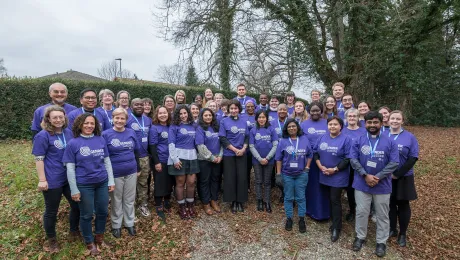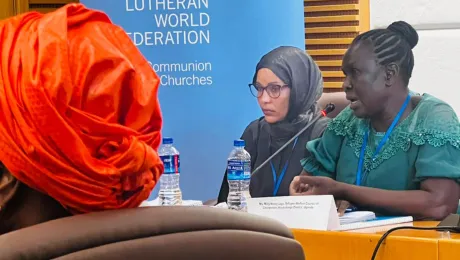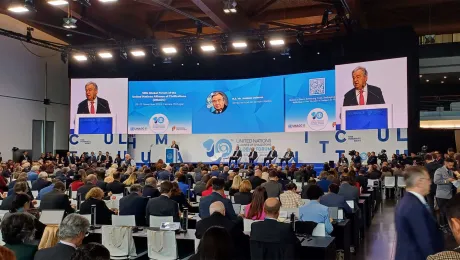Faith-based organizations helping protect land rights and natural resource management
Faith-based organizations helping protect land rights and natural resource management
Side event to 4th annual United Nations Forum on Business and Human Rights
With ACT Alliance and the World Council of Churches, the Lutheran World Federation closely follows and supports the UN Forum on Business and Human Rights. We've held successful side events, made submissions to the process and have imrpoved the capacity of the faith-based constituency across the world on business and human rights. We want to keep working on this issue and build stronger partnerships. As such, we're holding a side event during the 4th annual forum.
Large-scale industrial agriculture, mining and extraction often leave local residents at risk of losing their rights and dignity. Even though their right to be consulted and protected is entrenched in several international instruments, implementation is rare. The UN Guiding Principles on Business and Human Rights specify that states must prevent, protect and ensure access to remedies for victims of human rights abuses by business enterprises. In reality, protection is patchy. It is usually unclear, inconsistent and inadequate. Too often, those responsible for violating human rights in mining zones are not held to account. Campaigners who speak out against injustice increasingly face threats to their lives.
Faith-based institutions in Africa, Latin America and Asia play a significant role in raising awareness of human rights violations by transnational corporations engaged in extraction and land-grabbing. The three-day 4th UN Forum on Business and Human Rights - the world’s largest gathering on business and human rights - is an important place to lift up the experiences of churches and affected communities, and to propose concrete actions to uphold their rights.
Our side event at Geneva's Ecumenical Centre on November 16 brings together representatives from churches and communities in Angola, Democratic Republic of the Congo, Colombia, Ethiopia, Guatemala, Kenya, Mozambique, Myanmar, Nepal, the Philippines, South Africa, South Sudan, Uganda, Zambia and Zimbabwe to:
- share good practices in policy tracking, community mobilisation, action and support
- launch a policy brief that links the UN Guiding Principles on Business and Human Rights to national policy and practice with a view to tracking progress and coherence
- develop a joint plan for tracking national action plans and policies, international advocacy, capacity building, continuous learning and mutual support
- contribute to the discussions in the UN Forum on Business and Human Rights sessions by specifically raising the voices of the affected and those at risk
PROGRAM
09:00-10:30 Panel 1: Case studies
Moderator: Moreblessings Chidaushe
Panellists: Sister Stella Matutina, Panalipdan (the Philippines), Professor Bila Inogwabini, Christian Aid (DRC), Father Teddy Sichinga, Council of Churches (Zambia), Nilton Nazitemba, Lutheran World Federation
11:30-12:30 Panel 2: Policy implementation and coherence: good practices and continuing challenges
Moderator: Ralston Deffenbaugh, the Lutheran World Federation
Panellists: Darlington Muyambwa, Zimbabwe Environmental Law Association (Zimbabwe), Elizabet Periz, Tierra Digna (Colombia), Gloria Mafole, Church Council of Tanzania (Tanzania), Gitte Dyrhagen Husager, DanChurchAid (Denmark), Anabella Sibrian, Plataforma Internacional Contra La Impunidad (Guatemala)

Headframe of the Cullinan Diamond Mine (formerly the Premier Mine), Cullinan, South Africa, February 2006. Credit: NJR ZA via Wikimedia Commons, licence CC-SA


